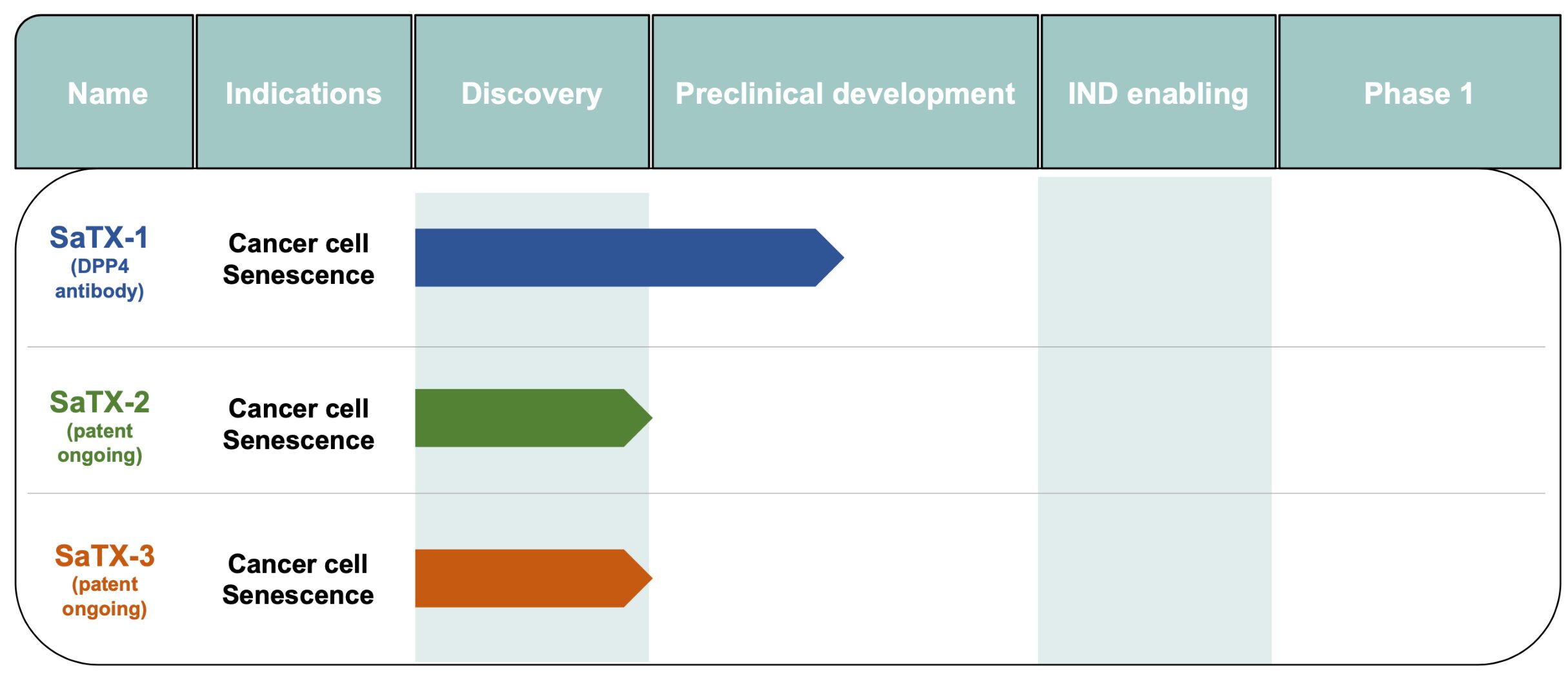Our Flagship Project:
Revolutionizing Cancer Treatment with an Anti-DPP4 ADC
Introduction to the Mechanism of Action of ADCs
Antibody-Drug Conjugates (ADCs) are a class of biopharmaceutical drugs that combine the specificity of monoclonal antibodies with the cytotoxic potency of cancer drugs. This technology enables specific targeting of cancer cells while minimizing the impact on healthy cells, thus offering a more effective and less toxic therapeutic approach compared to conventional therapies.
The Role of DPP4 in Cancerous and Senescent Cells
DPP4 (Dipeptidyl Peptidase-4) is an enzymatic protein expressed on the membrane of various cell types, including cancerous and senescent cells. In the context of cancer, DPP4 is often overexpressed, making it an ideal target for directed treatments. High expression of DPP4 is also associated with pathological processes related to cellular senescence, contributing to aging and tumor progression.
Design of the Anti-DPP4 ADC = STX-1
Our ADC is designed to exploit the overexpression of DPP4. The specifically developed monoclonal antibody recognizes and binds to DPP4 on targeted cells. Once bound, the ADC is internalized into the cell where the cytotoxic drug is released, leading to the death of the targeted cell. This « armed » approach allows for precise delivery of the cytotoxic agent, thus maximizing treatment efficacy while reducing the risks of systemic toxicity.

Preclinical Efficacy of Our ADC
Our preclinical studies, conducted in vitro on cell cultures and in vivo on murine models, have demonstrated remarkable efficacy of our ADC in treating several types of cancers, including liver and prostate cancers. The results not only show a significant reduction in tumor size but also a decrease in peri-tumoral senescent cells, contributing to the destruction of the tumor architecture responsible for metastases and relapses.
Potential Impact on Cancer Therapy and Senescence
By targeting both senescent and cancerous cells, our ADC not only treats cancer in isolation; it also addresses the peritumoral environment that supports cancer growth and spread. This opens up promising prospects for more comprehensive treatments that not only combat cancer but also prevent its long-term complications.
Conclusion and Outlook
StarkAge Therapeutics is committed to further developing this innovative technology. Our ongoing research and development efforts are directed towards clinical trials to fully evaluate the efficacy and safety of our anti-DPP4 ADC, with the hope of providing a new and innovative therapeutic solution for cancer patients and significantly improving their quality of life.
StarkAge Therapeutics Pipeline
In addition to our pioneering work with the anti-DPP4 ADC, StarkAge Therapeutics has established a platform for the discovery of new biomarkers of senescent cells. This platform enhances our ability to more precisely identify and target senescent cells, which will enable us to further improve the specificity of our targeted treatments.

Furthermore, we are advancing several secondary programs that focus on specifically destroying senescent cells. Initially targeting cancer, these programs are also being expanded to address other age-related conditions, where the accumulation of senescent cells plays a critical role in disease progression and severity. Our integrated approach aims to leverage these discoveries to broaden the impact of our therapies on health and longevity.
